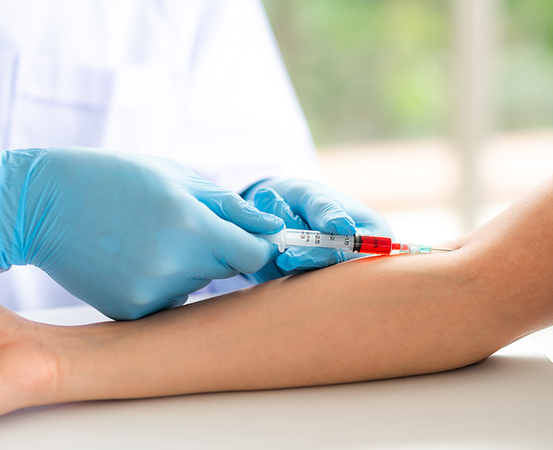
Diabetes, type 2 diabetes to be specific, has emerged as a global health menace in recent years. It is seen as a lynchpin metabolic condition for an array of cardiovascular complications including hypertension, heart failure, cholesterol and brain stroke.
It has been said that the best way to counter fluctuations of blood glucose in type 2 diabetes is to rein in one’s lifestyle with healthier choices of food and physical activity. But experts point out that the traditional outlook of occasionally checking blood sugar levels before and after meals has to evolve and include a few more regular checkups to ensure that diabetes doesn’t take a person, especially the middle-aged and elderly, by surprise.
“Annual medical checkups are required for all the people above the age of 50, and especially for those with diabetes, to know how their body is functioning and to prevent any complication before it occurs,” says Dr Banshi Saboo, chief diabetologist and chairman, Dia Care, Diabetes Care and Hormone Clinic, Ahmedabad, Gujarat. Dr Saboo is also secretary, Diabetes India and a former president of the Research Society for the Study of Diabetes in India.
Read more:
Limitless: A Taylor-made story of beating diabetes
An 82-year-old shares secrets of dealing with diabetes
Living with diabetes, and winning for 77 years
Dancing away the diabetes blues
Happiest Health lists down six important medical examinations and tests that diabetics should do regularly to ensure they stay a couple of steps ahead of the condition.
- HbA1c or A1C test
The HbA1c (glycated hemoglobin) or A1c test is a simple blood test that measures the average blood sugar level over the past three months. It is the primary test to diagnose prediabetes and type 2 diabetes. Dr Saboo says an HbA1c test should be done every three months to know the glucose status and get treatment accordingly.
An HbA1c result below 5.7 per cent indicates normal blood glucose level, whereas anything from 5.7 per cent to 6.4 per cent means prediabetes. If it is above 6.5 per cent, then the individual is diabetic and requires intervention.
The amount of HbA1c formed is directly related to the amount of glucose in the blood. “The average sugar level should also stay in the normal range to prevent any long-term complications which occur due to diabetes,” says Dr Saboo.
This test is in addition to the traditional fasting and after-meal blood glucose tests.
- Kidney function test
“People with uncontrolled diabetes and hypertension have higher chances of developing diabetic nephropathy,” says Dr Ganapathi Bantwal of the department of endocrinology at St John’s Medical College & Hospital, Bengaluru. A family history of chronic kidney disease is also a risk factor.
There are usually no symptoms of kidney disease in the early stages, and a kidney function test is required to determine the functional status of kidneys.
A kidney function test consists of a blood test, a urine microalbumin test or both. A blood test evaluates how well the kidneys filter the blood, whereas a urine microalbumin test looks for albumin (a protein produced by the liver), which can pass into the urine if the kidneys are damaged.
- Diabetic foot examination
Chronic diabetes makes people more prone to foot problems, particularly foot ulcers or gangrene. Extreme manifestations of these may lead to amputation. Poor blood circulation and nerve damage are two prominent reasons for diabetic foot problems.
This foot examination includes checking for any damage to foot issues, such as infections, ulcers and injuries in diabetics. Dr Bantwal says people with chronic diabetes should get their feet examined regularly.
- Lipid profile (cholesterol test)
A cholesterol test is a blood test that measures the amount of cholesterol and triglycerides in the blood. An increase in triglycerides and LDL is linked to an increased risk of type 2 diabetes.
Dr Bantwal says a minimum of eight to 14 hours of fasting is needed before a cholesterol test. Dr Saboo says cholesterol levels should be regularly checked to prevent any long-term diabetes complications, mainly cardiovascular ones.
- Eye examination
Dr Rajeshwari Janakiraman, chief consultant, diabetology and endocrinology, Manipal Hospitals, Bengaluru, says regular eye examination is important since people with diabetes are at a higher risk for various ophthalmological complications, including serious conditions such as glaucoma, diabetes retinopathy and retinal problems. High levels of sugar in the blood can damage retinal blood vessels.
A dilated eye exam is required to identify problems. During the exam, eyedrops are put into the eyes so the ophthalmologist can have a clearer view of the blood vessels deep inside and identify any abnormalities.
- Dental examination
People with diabetes are at high risk of developing gum disease. If left untreated, diabetes can lead to infected gums or even loss of teeth. “Periodontal diseases are very common when a person has uncontrolled diabetes,” says Dr Bantwal.
Getting a dental exam every six months, and regular cleaning will be helpful to prevent any complication in the teeth due to high blood sugar.

















